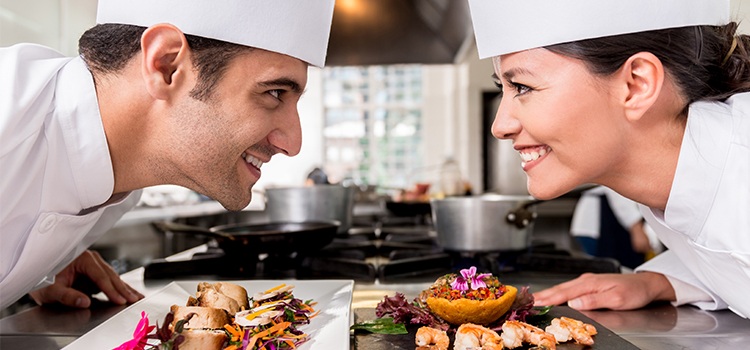Culinary Arts Programs—Dispelling the Top Myths
These five rumors about culinary arts programs are more fiction than fact.

1. You have to go to top culinary arts programs to be successful.
You should consider many things when you choose a school: location, cost, quality of teaching, and potential connections for future jobs. The "top" culinary arts programs may not be the best match for your criteria. There are many excellent culinary arts schools that can give you solid skills and foster your creative spark. Your talent and drive will be far bigger factors in your success than prestigious schooling, so don't let an obsession with attending one of the most prominent culinary arts programs stand in the way of your career goals.
2. If you can cook, there's no reason to attend school.
If you're confident cooking for 200 people at a time, you should go for it. But don't be fooled by professionals on TV who make it look easy. And definitely don't discount the value of culinary arts programs. You'll learn valuable techniques, work with top-of-the-line equipment and ingredients, and learn from experienced professionals. If you're creative and motivated to learn, you can get a lot out of culinary arts school.
3. Working in a restaurant will put you on the culinary fast track.
Experience is a great teacher, but in the macho restaurant industry, you can start as a food prep or line cook and then spend years in that position before moving up. A culinary arts degree will complement your industry experience, set you apart from your peers, and help jump-start the next phase of your career. Getting intensive and thorough training in a culinary arts program will give you confidence and skills that you may not gain in a run-of-the-mill restaurant experience.
4. Culinary arts programs are too expensive.
Culinary arts programs range from $15,000 to $50,000 depending on the school and type of degree. You can run the numbers—compare your investment to your opportunity for success over time, not to mention the benefit of doing something that you love. If you're worried about taking on loans, getting expert advice about financial aid can help put your mind at ease.
5. Culinary arts instructors are out of touch.
There are good and bad teachers in any area of study. But even if you meet only one great mentor who inspires you and pushes you to work harder and be more daring, that experience alone can be worth the price of admission. And if you don't find that stand-out teacher whose teaching style resonates with you, you'll still benefit from the collective knowledge and influence of your culinary arts instructors.
FIND A CULINARY SCHOOL TODAY
Tell us a little about yourself and we'll connect you with schools that offer culinary arts programs.
